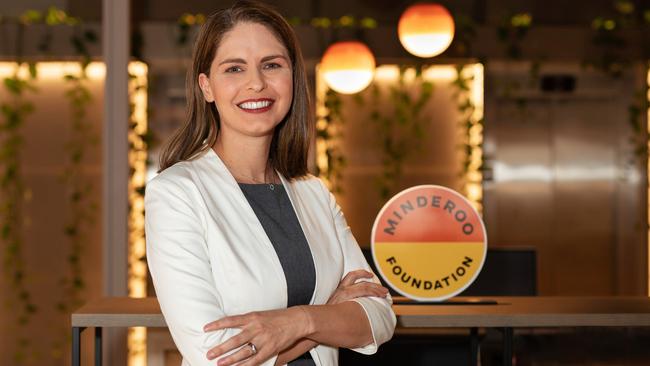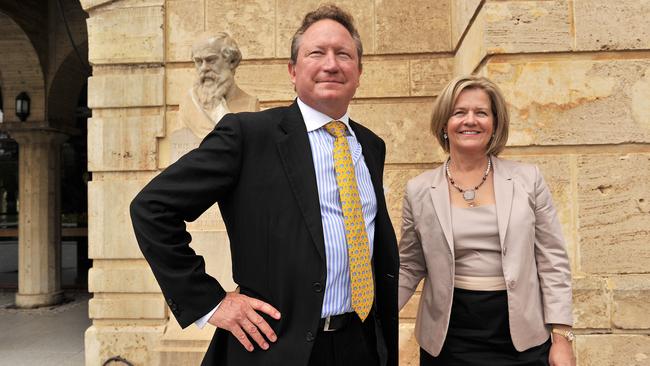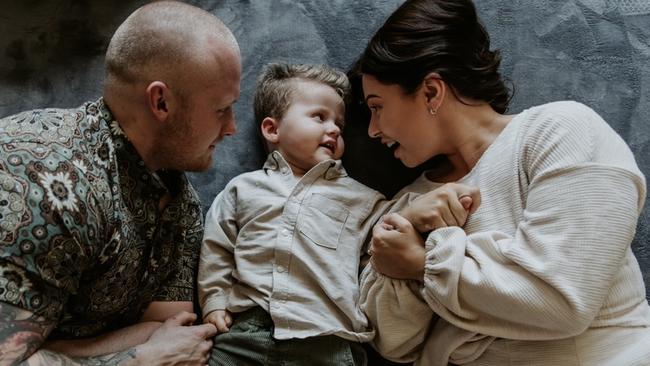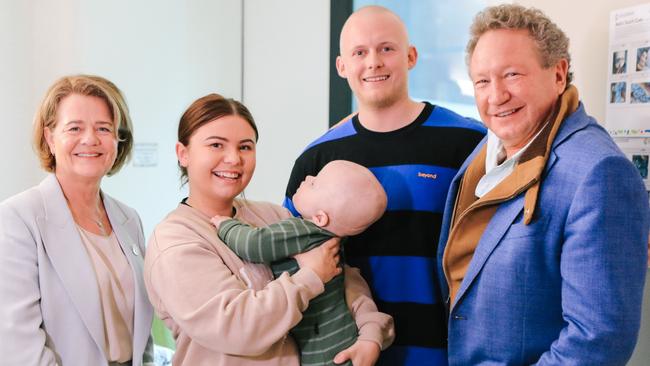Twiggy Forrest set Aussie psychologist task to save world from paediatric, brain, cervical cancers
An Aussie researcher has been set a giant mission by billionaire Andrew “Twiggy” Forrest to transform cancers from a death sentence to treatable diseases.
Health
Don't miss out on the headlines from Health. Followed categories will be added to My News.
She’s the woman with the seemingly impossible job – to make paediatric, brain and cervical cancers nonlethal in a generation.
Professor Claire Wakefield – a psychologist, not an oncologist – has been set the task by mining billionaire Andrew “Twiggy” Forrest.
His charity, the Minderoo Foundation, wants to transform cancer from a death sentence to a treatable disease within the next 30 years.
“It is a massive, massive mountain that we’re tackling,” said Professor Wakefield, who worked for 20 years researching better ways to improve mental health in cancer patients.
“My focus will be on scaling up and implementing our already successful projects, as well as identifying new innovations around the world that have potential to change cancer care as we know it.”

To help tackle paediatric cancer, the Minderoo Foundation has provided $17.2 million towards the Zero Childhood Cancer program which uses genetic testing and precision medicine to help find the best treatments for children with cancer.
The overall survival rate for childhood cancers is already at 80 per cent but three children and adolescents per week still die from cancer in Australia, and two thirds of children who survive cancer suffer serious long-term effects.
The charity has also provided $15 million (plus another $5 million in matched grants) toward a new children’s comprehensive cancer centre due to open in Randwick, Sydney, in 2025.
It will house clinical care workers and researchers under the one roof so cutting edge scientific discoveries can be directly translated into clinical care and clinicians in the hospital can report back to the researchers about what they’re discovering and what the gaps are.
“If you can save the life of the child and minimise the toxicity that they experienced, then they can have six or more decades of healthy life and productivity to give back to the community,” said Professor Wakefield.
To fight brain cancer, the Minderoo Precision Brain Tumour Program is working in partnership with the University of Cambridge, the UK National Health Service (NHS), and cancer genomics company Illumina to use genetic information to diagnose and provide personalised treatment for a patient’s brain tumour.

It also works with the Tessa Jowell Brain Cancer Mission to develop a set of standards for brain cancer services, and ensuring that all hospitals can provide the same level of services to brain cancer patients around the world.
Thanks to a cervical cancer vaccine developed by Australia’s Professor Ian Frazer and cancer screening programs, cervical cancer could be eliminated worldwide by 2100.
The Cancer Council has predicted that Australia is on track to be the first country to reach the milestone by as early as 2035, a mere 28 years after we introduced a nationwide vaccination program for teenagers.
To help meet the goal globally, the Minderoo Foundation will spend $8 million on a program to vaccinate, test and treat women in Papua New Guinea for cervical cancer. It aims to save 150,000 lives.
Professor Wakefield said her job was to help people to collaborate, provide new buildings, new technology and data sharing platforms so people already working on cancer can take their work to the next level.
“I feel pretty positive it’s an ambitious goal, but it’s also not a not completely unachievable goal either,” she said.
‘REID LIVED IN HOSPITAL FOR MONTHS ON END’
Two-year-old Reid Nicholls has spent most of his life in hospital, after a high-grade glioblastoma (cancer) was discovered in his brain when he was just six months old.
“He pretty much lived at Perth Children’s Hospital from the age of about six months ’til he was over one. We were in hospital for eight months straight and he underwent two major brain surgeries, he had two strokes, and then he had to have eight months of chemotherapy,” Reid’s mother, Jade Reynolds, said.

Reid’s cancer is now in remission but he developed epilepsy as a result of his treatment and his chemotherapy had to be stopped early.
Genomic sequencing of Reid’s tumour was done as part of the Zero Childhood Cancer Program (ZERO) and has given the family a more precise diagnosis that will help if the cancer returns.
“It has been a long and hard road, but we are so proud of our beautiful boy for defying the odds and reaching milestones we never thought possible,” Ms Reynolds said.

By the end of 2023, all children and young people diagnosed with cancer each year in Australia will have the opportunity to access genomic sequencing as part of ZERO.
Every child participating in ZERO has a sample of their tumour sent to the Children’s Cancer Institute in Sydney, where comprehensive genetic testing and analysis is carried out.
Clinicians and researchers from across Australia then meet virtually to discuss the diagnosis and provide treatment recommendations for that child.
More Coverage
Originally published as Twiggy Forrest set Aussie psychologist task to save world from paediatric, brain, cervical cancers





